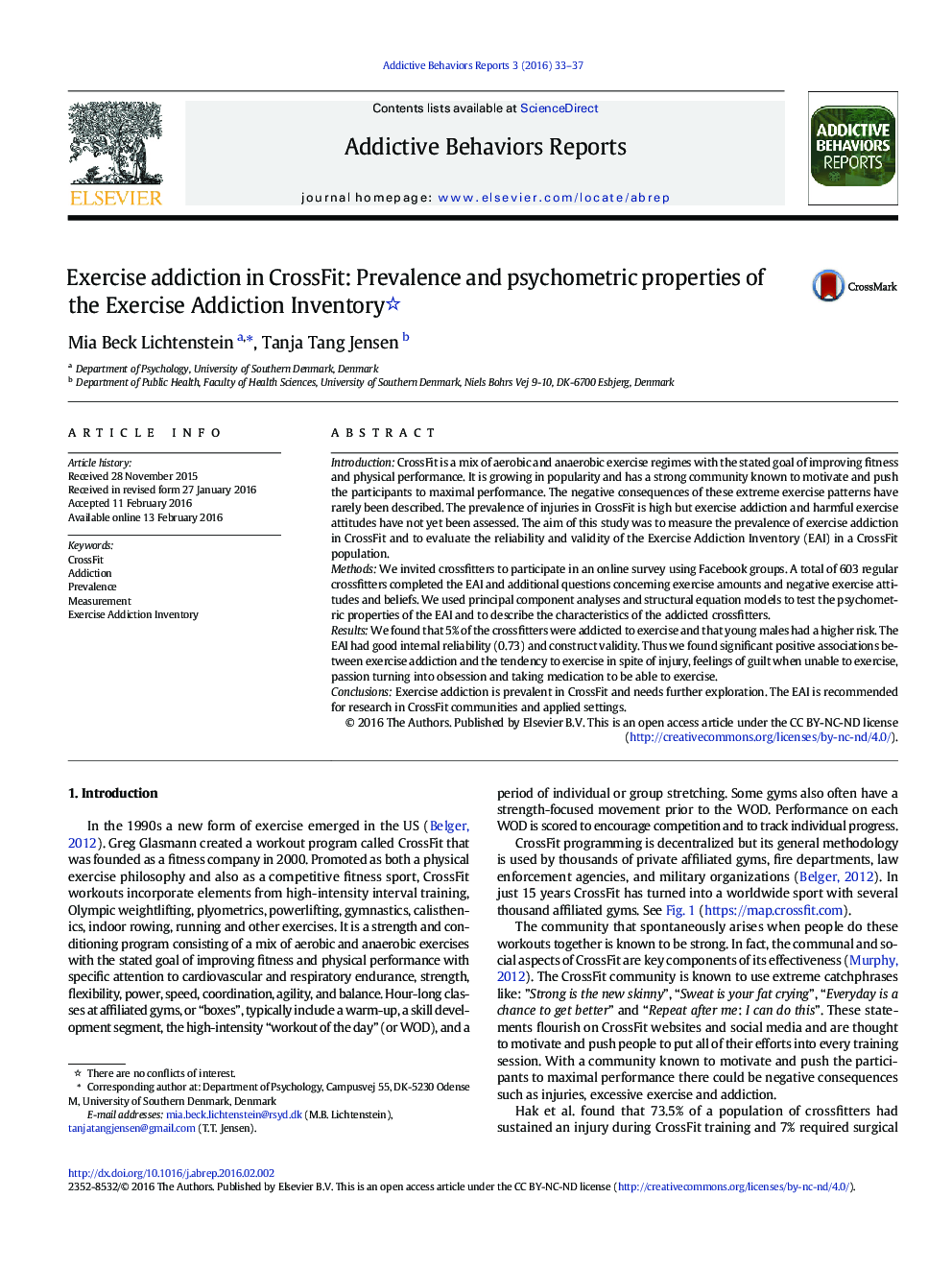| Article ID | Journal | Published Year | Pages | File Type |
|---|---|---|---|---|
| 900727 | Addictive Behaviors Reports | 2016 | 5 Pages |
•The prevalence of exercise addiction in CrossFit is 5%.•Young males have a higher risk of addiction.•CrossFit addiction is associated with feelings of guilt when unable to exercise.•When passion turns into obsession it leads to conflicts in social relations.•The Exercise Addiction Inventory is recommended as a screening tool in CrossFit.
IntroductionCrossFit is a mix of aerobic and anaerobic exercise regimes with the stated goal of improving fitness and physical performance. It is growing in popularity and has a strong community known to motivate and push the participants to maximal performance. The negative consequences of these extreme exercise patterns have rarely been described. The prevalence of injuries in CrossFit is high but exercise addiction and harmful exercise attitudes have not yet been assessed. The aim of this study was to measure the prevalence of exercise addiction in CrossFit and to evaluate the reliability and validity of the Exercise Addiction Inventory (EAI) in a CrossFit population.MethodsWe invited crossfitters to participate in an online survey using Facebook groups. A total of 603 regular crossfitters completed the EAI and additional questions concerning exercise amounts and negative exercise attitudes and beliefs. We used principal component analyses and structural equation models to test the psychometric properties of the EAI and to describe the characteristics of the addicted crossfitters.ResultsWe found that 5% of the crossfitters were addicted to exercise and that young males had a higher risk. The EAI had good internal reliability (0.73) and construct validity. Thus we found significant positive associations between exercise addiction and the tendency to exercise in spite of injury, feelings of guilt when unable to exercise, passion turning into obsession and taking medication to be able to exercise.ConclusionsExercise addiction is prevalent in CrossFit and needs further exploration. The EAI is recommended for research in CrossFit communities and applied settings.
